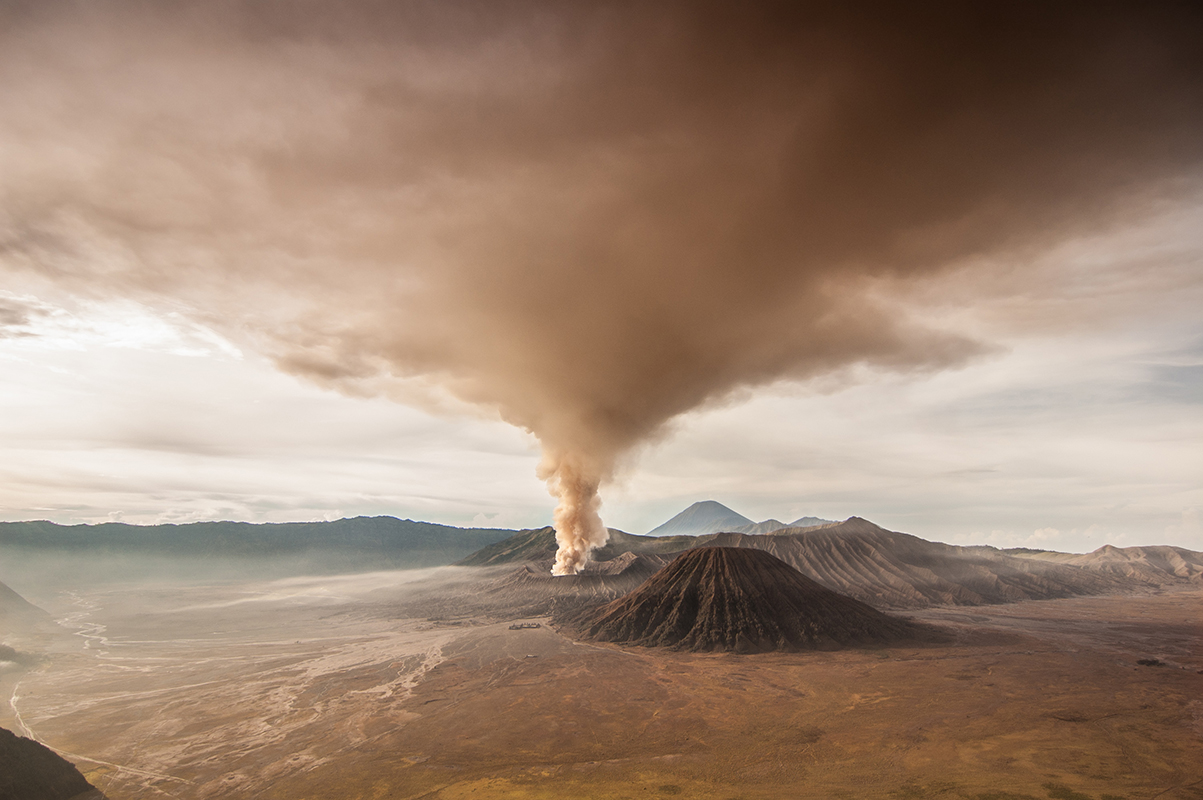Volcanic Eruptions May Have Doomed an Ancient Egyptian Dynasty

Thousands of years ago, fallout from volcanic activity may have sounded a death knell for a centuries-old Egyptian dynasty, according to a new study.
In Ptolemaic Egypt (305 B.C. to 30 B.C.), the region's prosperity was linked to the flood cycle of the Nile River, with regular flooding sustaining local agriculture. When floods failed, so did crops, and social unrest shook the region.
The new study proposes a link between historic volcanic activity and disruption of the African monsoon rainfall during the summer. A drier monsoon season could have reduced Nile flooding, leading to fewer crops and more food shortages and, ultimately, initiating a societal unraveling that led to the Ptolemaic dynasty's eventual collapse, the study authors wrote. [7 Amazing Archaeological Discoveries from Egypt]
When volcanoes erupt, they spew sulfur-rich gases in plumes that can extend into the stratosphere. These gases then oxidize and form particles called sulfate aerosols that can dramatically impact weather patterns such as monsoons, the study authors reported.
"These aerosols are really effective at reflecting incoming sunlight back to space," study co-author Francis Ludlow, a researcher with the Yale Climate and Energy Institute, told Live Science in an email.
"Hence, less energy reaches the earth's surface, so we have cooling, and where we have cooling, we also have less evaporation and less potential for rainfall," he said.
Aerosols produced by a volcanic eruption in Iceland, for instance, could thereby sap the heat driving the African monsoon, thus leading to less rain and reduced Nile flooding, Ludlow explained.
Sign up for the Live Science daily newsletter now
Get the world’s most fascinating discoveries delivered straight to your inbox.
A dry season
Piecing together the events in ancient Egypt required delving into the geologic record for evidence of global volcanic activity and comparing that activity to fluctuations in annual Nile flooding, recorded over centuries with structures called nilometers.
"It was already known that the Nile was dependent on the strength of the African monsoon each summer, and that volcanism could alter the monsoons," Ludlow said. The nilometers confirmed that during years when there were volcanic eruptions, the average Nile response was lower flood heights, the researchers found. Next, they needed to see if this finding corresponded to social repercussions.
The scientists compared their data to extensive records from the Ptolemaic dynasty describing episodes of unrest — which were previously unexplained — to see whether these incidents overlapped with volcanism and reduced flooding, Ludlow said.
Archives showed that, in the decade prior to the fall of the Ptolemaic dynasty — which ended with Cleopatra's death in 30 B.C. — Egypt's prosperity had weakened notably, with repeated Nile flooding failure, famine, plague, inflation, corruption, land abandonment and migration taking a heavy toll, Ludlow told Live Science in an email.
Moreover, samples taken from ice cores provided data about volcanic eruptions that aligned with notable social unraveling, the study authors wrote.
For example, a massive volcanic eruption in the Northern Hemisphere in 44 B.C. — the same decade noted in Egyptian records as a period of declining fortunes — was the biggest eruption in 2,500 years, "with 87 percent of the aerosols remaining in the Northern Hemisphere," Ludlow said.
Undermining a dynasty
Because Egyptian agriculture depended almost entirely on summer flooding, interruptions in the floods could devastate crops, thus leading to famines and an increase in social tensions as people grew hungry and desperate. If other social and economic stresses were already at play — elevated taxes or disease outbreaks, for example — this could be enough to tip unrest into a full-blown revolt, Ludlow explained.
Warnings for the present are also written in these historical records, Ludlow added.
Though volcanic activity in recent centuries hasn't rivaled the cataclysmic upheavals of past millennia, that could change "at any time," he said. Explosive eruptions could have a devastating impact on agricultural regions that are presently dependent on monsoons, which would directly impact about 70 percent of the global population, Ludlow said.
"For the Nile, in particular — with tensions already high regarding the sharing of water from the Blue Nile between Ethiopia, Sudan and Egypt — the possibility of diminished supplies following the next big eruption needs to be included in any water-sharing agreements," Ludlow said.
The findings were published online today (Oct. 17) in the journal Nature.
Original article on Live Science.

Mindy Weisberger is an editor at Scholastic and a former Live Science channel editor and senior writer. She has reported on general science, covering climate change, paleontology, biology and space. Mindy studied film at Columbia University; prior to Live Science she produced, wrote and directed media for the American Museum of Natural History in New York City. Her videos about dinosaurs, astrophysics, biodiversity and evolution appear in museums and science centers worldwide, earning awards such as the CINE Golden Eagle and the Communicator Award of Excellence. Her writing has also appeared in Scientific American, The Washington Post and How It Works Magazine. Her book "Rise of the Zombie Bugs: The Surprising Science of Parasitic Mind Control" will be published in spring 2025 by Johns Hopkins University Press.









